Average sizes and life expectancy for this breed:
Birman cats are an ancient mystical breed initially known as the Sacred Cat of Burma. They have been adored for generations because of their beautiful markings and lovely, mild temperament. Birmans are medium to large size cats who are easy-going and friendly, making them excellent companions for all ages.
This beautiful cat breed was once beloved by temple monks who saw them as pure-spirited beings. Since then, they have become a popular cat breed found in many countries across the globe. Birman cat owners love their lush, cream-colour coats with darker points, white-gloved paws, and gorgeous sparkling blue eyes.
Moreover, their laid-back, friendly, and highly loving personality makes them an ideal feline companion for seniors. They love to be petted, held and will cuddle for hours in the arms of their owner.
If you talk to a Birman cat, they will respond in a soft, cute voice, a stark contrast to the loud Thai or Siamese cats. They are less active than some cat breeds, but they have a playful side, too.
See available kittens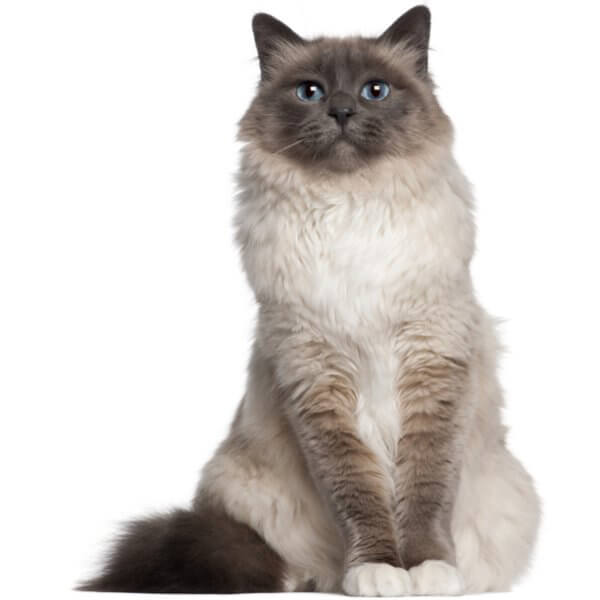

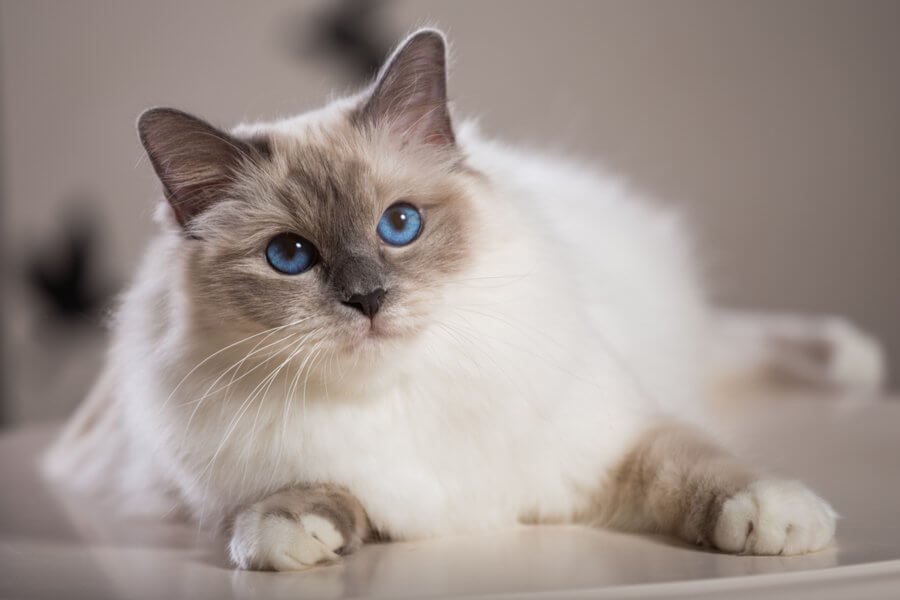


The Sacred Cat of Burma’s history is immersed in legends. The most commonly told is that a goddess gifted the breed their white paws and hypnotic blue eyes because of a temple cat’s loyalty and dedication to his priest. From then on, the legend narrates how whenever a temple cat passes away, it carries a priest’s soul to heaven.
While this is considered a legend, it seems like Birmans or similar-looking felines have been around for a long time. For example, in the 1930s, many seal-point cats were seen living in the temple ruins in Burma. While feral, they were protected and fed regularly by locals who believed in the legend.
Then, in 1988, cat breeders saw photographic evidence of similar looking cats in Burma but could not enter the country due to the political unrest happening at the time. Therefore, sufficient evidence suggests that Birman cats originate from Burma, and this breed is an ancient one.
Even so, it wasn't until the mid-twenties when Birman cats were first recognized in France. Then forty years later, in 1966, the GCCF finally accepted the cat breed, too. Today, these easy-going and gentle cats are a favourite choice as cat companions and family pets.
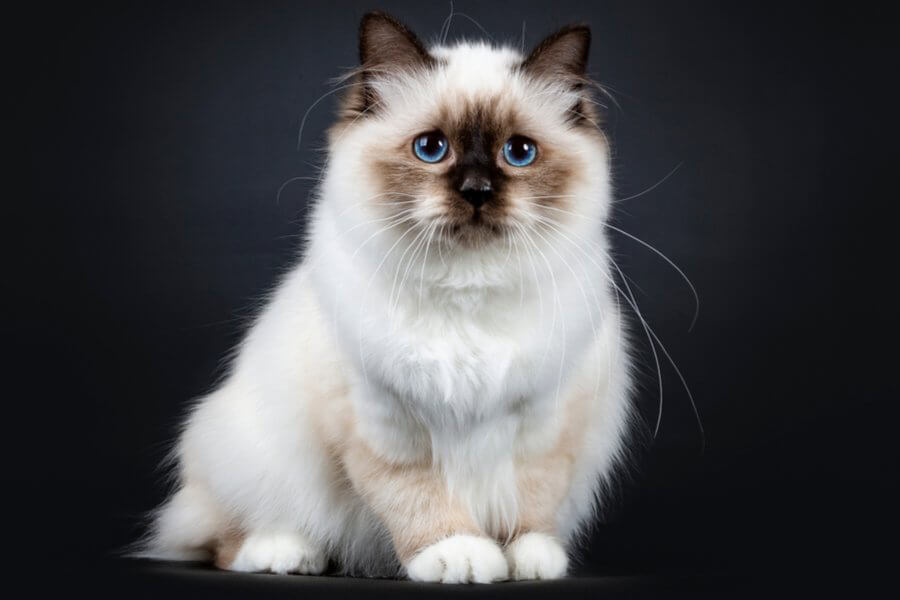
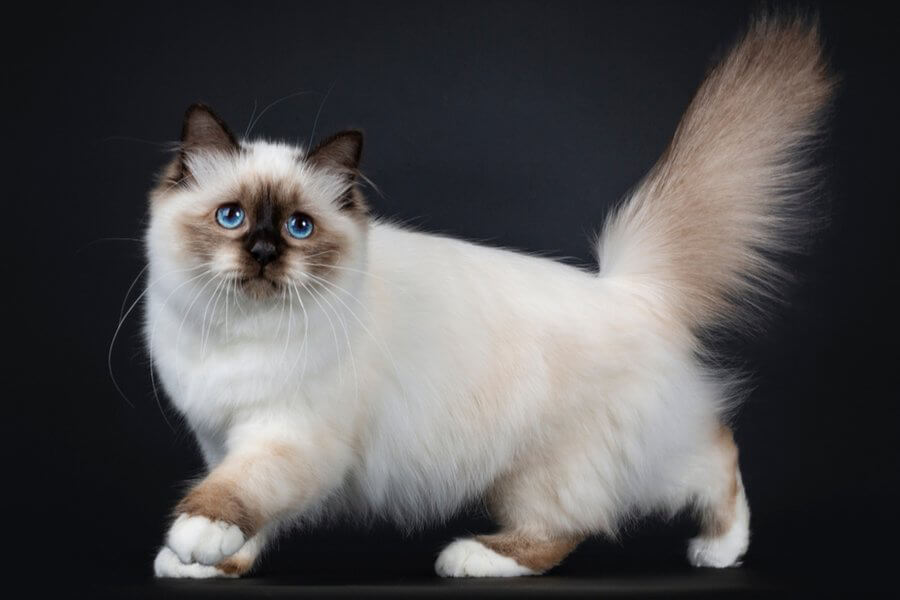
Birman cats are medium to large and have robust, sturdy bodies and broad, rounded heads. They have bright blue eyes with beautiful, gentle expressions and medium-size ears set nicely spaced apart. They have moderately long noses with a slight dip, well-developed chins and cute full cheeks.
They have long, well-boned bodies, medium length, thick legs, and short, strong paws. Their tails are bushy yet in proportion with their body, which adds to their overall well-balanced appearance.
The long-haired Birmans boast the same colourpoint patterns as the Siamese. The classic Birman colouring is a cream/beige body with darker hair on their faces, ears, legs, and tails. However, you can find Birman cats in many colours, including blue, lilac, and chocolate. Regardless of their coat colour, their long, lustrous hair is soft and silky to touch.
All Birman cats have white paws, which many consider being an attractive characteristic of the breed. The white on a Birman cat's hind feet may continue further up their legs to their hock joint.
Birman kittens are generally born white with fuzzy fur and develop their colourpoints as they grow. Their colourpoints can begin to show from one to two weeks old, but it takes two years before a Birman cat develops their adult colours.
Birman cats are affectionately called "Velcro" cats because they follow their owner around in silence. They are considered one of the quietest and calmest cat breeds, but don't get fooled; they have a playful side.
The Birman cats are stunning cats to look at; that's a fact. But their kind, calm and gentle nature is what makes this cat breed one of the most favoured choices with cat lovers. They love to be in their owner's company and are known for the cute way they "talk" to their owners, with more of a chirp than a meow.
Birmans are not the type of cat breed to play fetch or chase after a ball, but they are still reasonably intelligent and curious. They love to play games with their owners and with interactive toys on their own.
The easy-going nature of a Birman cat means they can adjust to your lifestyle and environment. Therefore, they can do well living in a small house, an apartment, or a vast estate in the country. Moreover, they adapt well to being indoors, so it’s OK to keep them as indoor-only cats if you live in a city or close to busy roads. But, if you live in the country, you can let your Birman roam outside as they enjoy exploring their environment to mark their territory.
Additionally, they will do just fine with another cat or dog. Just make sure that a proper introduction is in place beforehand. Although Birmans are not a cat breed that wants to be the only animal in the house, they won't mind being a solo pet as long as you spend some quality time with them.
Birman cats have an independent side to their personality and enjoy some time alone. However, as social felines, they also love to be part of everything in the household. Therefore, they can miss their owners when left on their own for long periods. They will generally be fine in a home where the owner works during the day, as long as they get lots of love and affection in the evenings.
This beautiful cat breed is moderately active, and they enjoy playing for short times with some felt mice or plastic balls. Also, they adore cat trees where they can watch the world from above or a sunny window where they can perch and observe the outside world.
Birmans indeed take lots of cat naps, but they enjoy some simulation and activity in between sleeping to keep their bodies and brains in healthy condition. However, all you need to do is ensure there are plenty of interactive toys for them to use and scratching posts around the house so they can stretch and scratch when they feel like it.
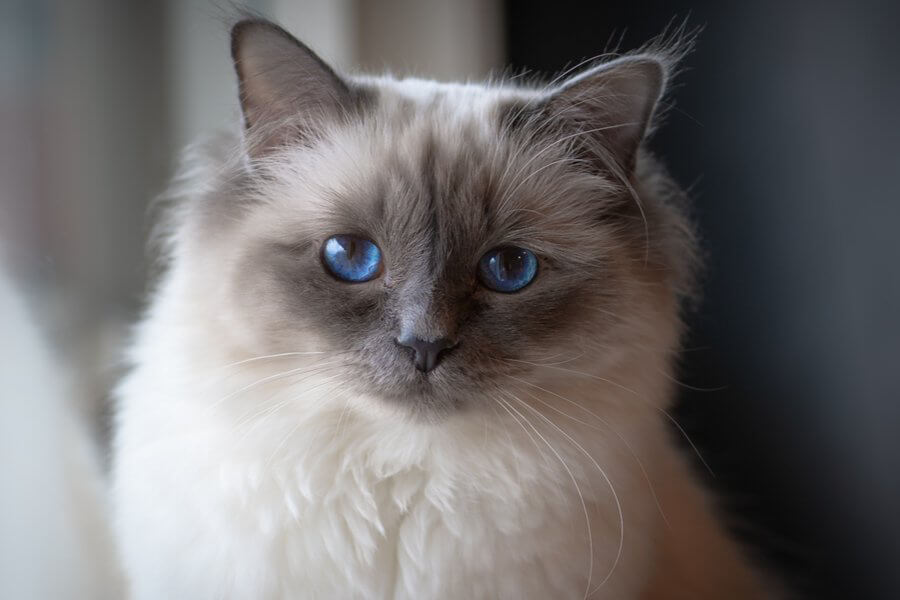
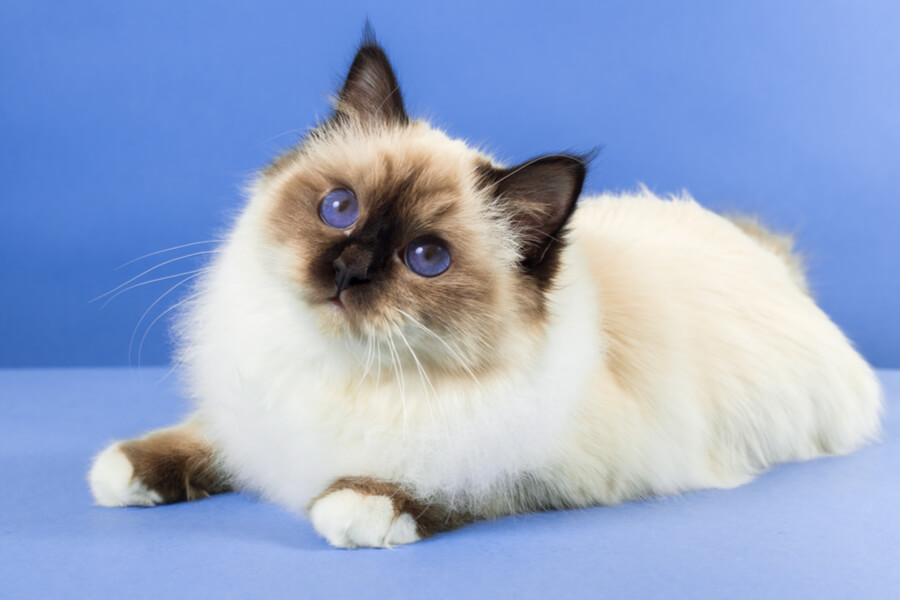
Birman cats are widely known as a loving and affectionate cat breed, having been bred as companion cats for many generations. However, Birman cats are still curious and intelligent felines. They will cheerfully follow their owner around the house to check what they are doing and maybe even help.
However, most Birmans are not that interested in learning tricks or commands. They love playing games but are happier to curl up and snuggle next to someone on a sofa rather than learn tricks or play fetch.
Although Birman cats have long coats that are silky to the touch, their hair is not susceptible to matting, and they are low maintenance when it comes to grooming. Twice-weekly brushing or combing is all it takes to keep their coats in excellent condition. Generally, Birmans don't shed much either. However, like other breeds, their shredding level may increase during the Spring and Autumn.
You should clean your Birman’s ears regularly to avoid the risk of an ear infection. Moreover, keep their nails trimmed as needed. For their dental hygiene, brush their teeth with a vet-approved toothpaste to prevent gingivitis and periodontal disease.
Just like other cats, make sure to keep their litter box clean at all times, as they are very particular about bathroom hygiene. A clean toilet environment will help keep their fur clean and their paws white as well.
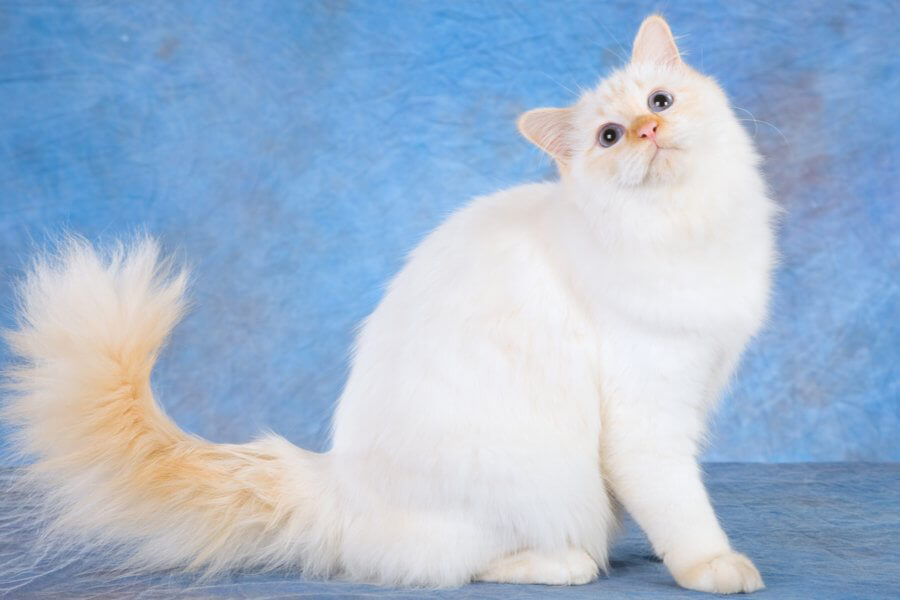
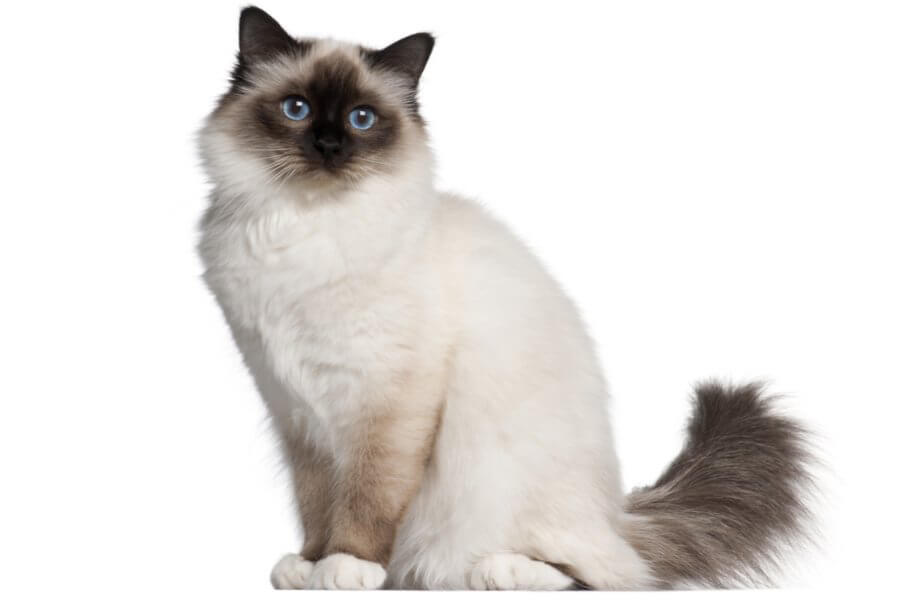
Birman cats are generally very strong and healthy felines, and with proper care and nutrition, they can live from 13 to 16 years. There are not many health problems that are hereditary to Birmans, but there are a few things you should keep an eye out for.
Aside from these health concerns, Birmans can be prone to Periodontal Disease, like many cat breeds. However, the likelihood is low if you brush their teeth regularly. Finally, as long-haired cats, they have an increased risk of hairballs, thus, you may find a specifically formatted food for this issue beneficial.
Birmans are famous for being very tolerant of children. They are friendly and approachable and are happy to play with them. That’s why they are an excellent choice for families. Plus, as Birmans are so calm, they are much more likely to walk away than scratch a child if they don’t like how they are holding them.
Birmans are happy and content to live with other cats and cat-friendly dogs. Even so, it is always best to introduce pets gradually and in controlled environments. Moreover, always supervise younger kids when playing with the cat to avoid accidents caused by them pulling their fur or twisting their tail.
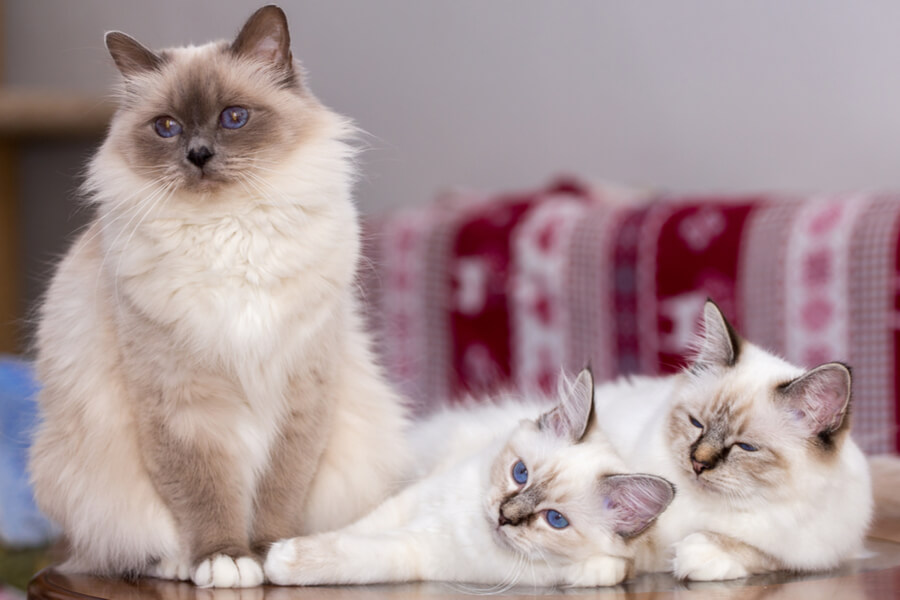

We can connect you with Breeders that are specialized in this particular breed.
See available kittens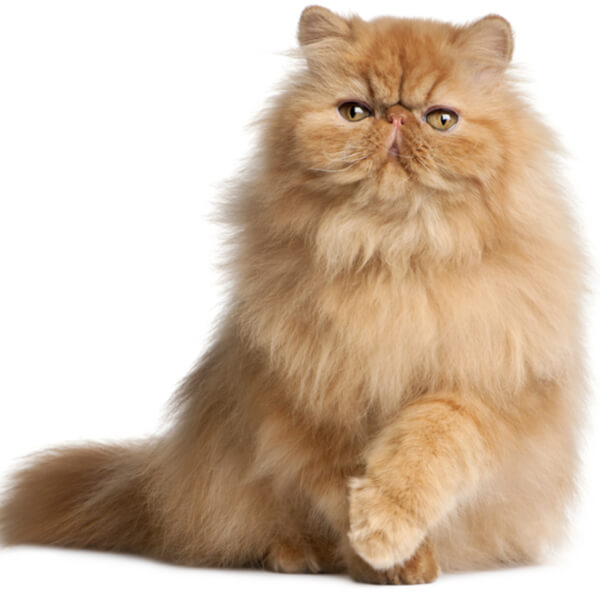
Iran
Size : Medium
Coat : Long
Registration : GCCF, TICA, CFA, FIFe
Vocality : Low
Hypoallergenic : No
Grooming : Twice a Week
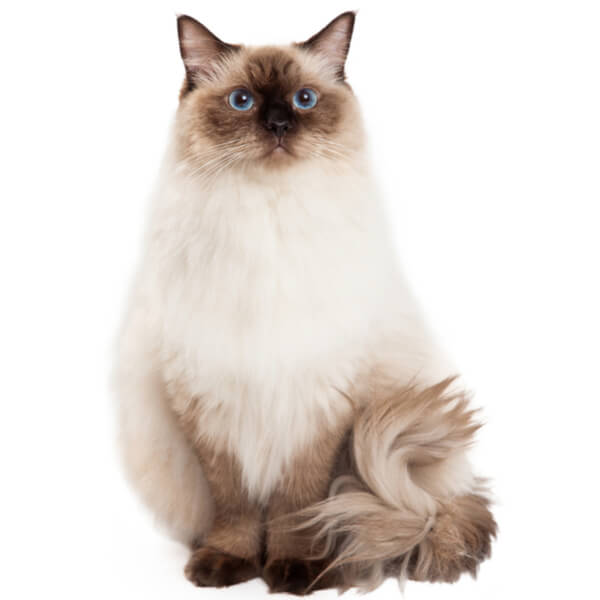
United States of America
Size : Large
Coat : Long
Registration : GCCF, TICA, CFA, FIFe
Vocality : Low
Hypoallergenic : No
Grooming : Twice a Week
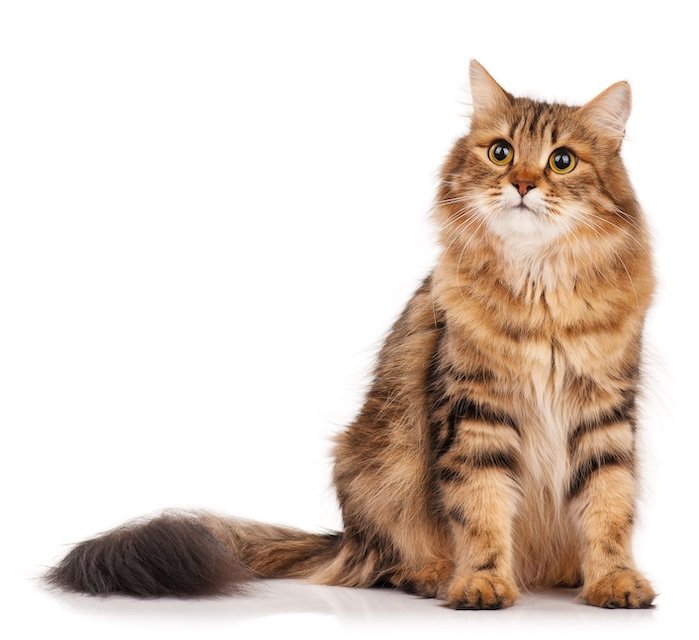
Russia
Size : Medium
Coat : Long
Registration : GCCF, TICA, CFA, FIFe
Vocality : Medium
Hypoallergenic : Yes
Grooming : Twice a Week
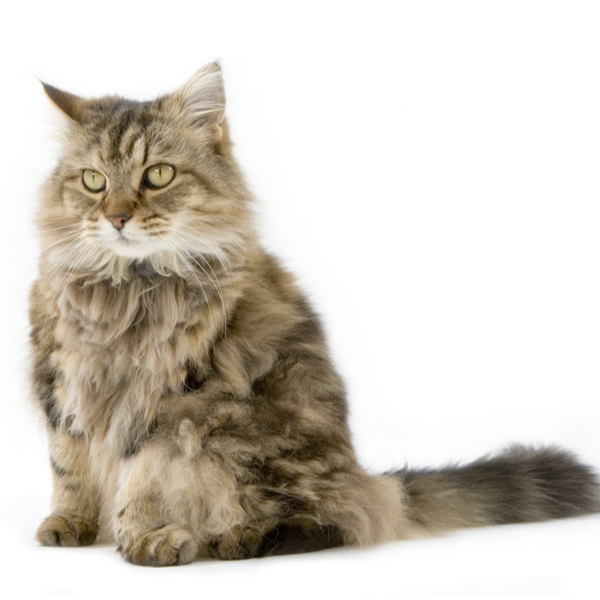
United States of America
Size : Large
Coat : Long
Registration : GCCF, CFA
Vocality : Low
Hypoallergenic : No
Grooming : Twice a Week


Need some advice?
Whether you're a first time pet owner, an experienced pet owner, a new or long-time breeder, or just curious about pets, we've got you covered!
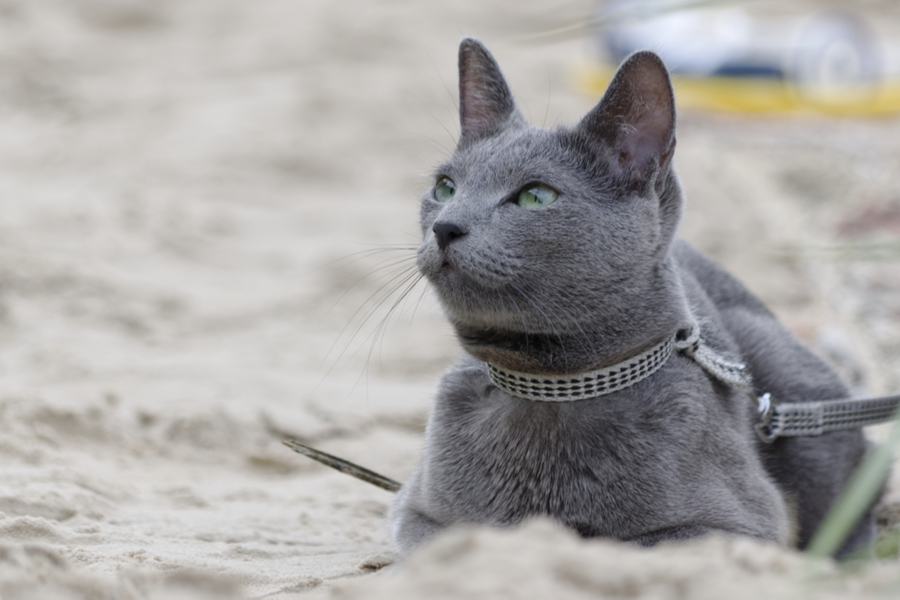
January 17, 2024
What Is The Personality Of Russian Blue Cats?
Russian Blue cats are most known for their distinctive shimmery blue-silver coat and piercing green eyes. However, this breed’s calm and gentle temperament is what makes them shine the most in the feline world.
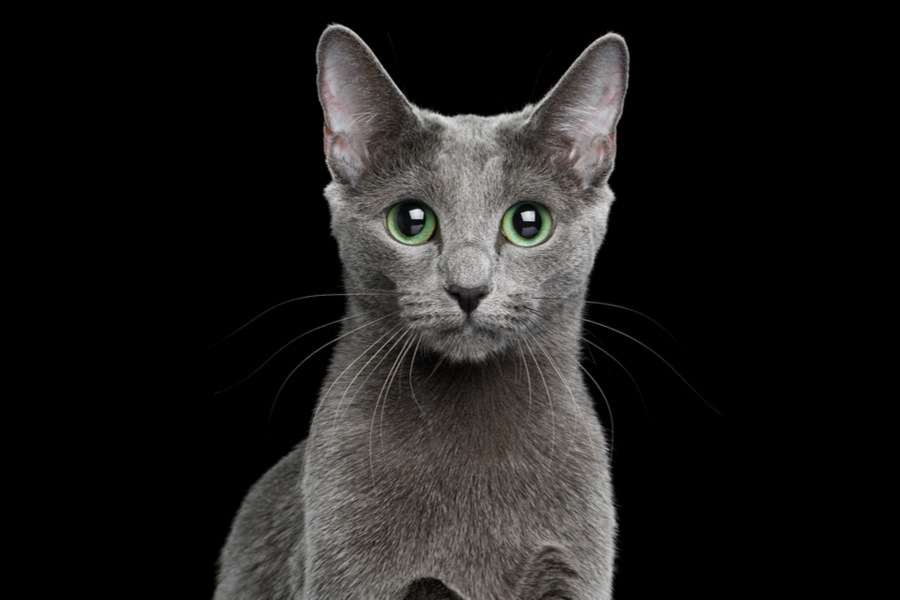
January 17, 2024
10 Facts About Russian Blue Cat Breed
Russian Blues are one of the most aesthetically stunning cat breeds, with a gorgeous plush silvery coat and vibrant green eyes. However, it’s not only their appearance that is beautiful; their nature is too.
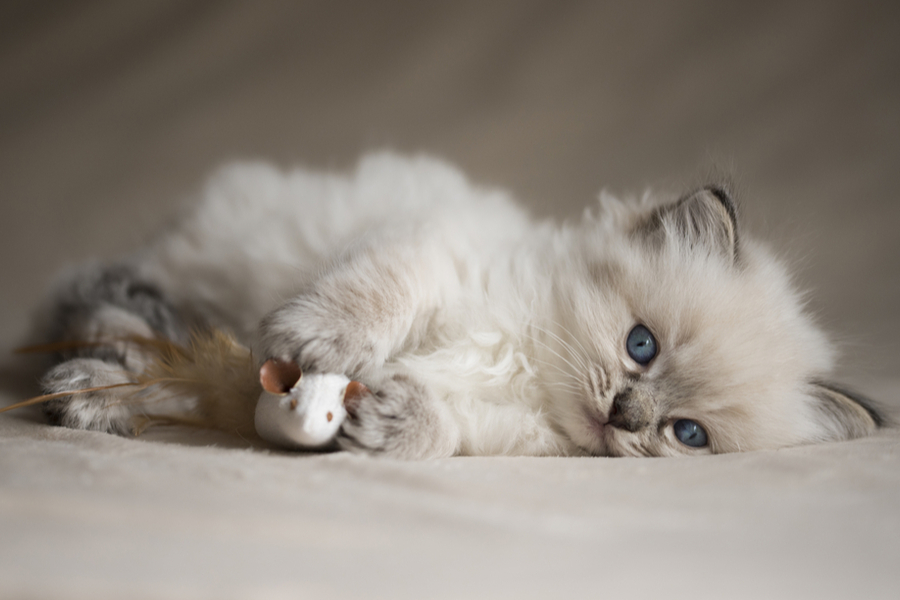
January 17, 2024
How To Choose The Right Cat Breed for You
Cats can make the most fantastic animal companions; they are adorable, friendly, and loving. However, not all felines are created equal. There are many different breeds, of which each has its unique personality traits.
Need some help?
Contact us to speak to our friendly advisor, who will gladly help you find your dream pet!



We are registered in England and Wales under registration number 12568840,
and our registered office is at 58-60 Kensington Church Street, W8 4DB London, England.
© 2023 The Pedigree Paws